Top officials in another meeting ahead of talks
A new meeting of top state officials dedicated to the Kosovo talks was taking place today; <a href="http://www.b92.net/eng/news/politics-article.php?yyyy=2013&mm=04&dd=01&nav_id=85469" class="text-link" target= "_blank">President Tomislav Nikolić held an extraordinary news conference.</a>
Monday, 01.04.2013.
09:51

BELGRADE A new meeting of top state officials dedicated to the Kosovo talks was taking place today; President Tomislav Nikolic held an extraordinary news conference. After these consultations, it was decided that First Deputy Prime Minister of Serbia Aleksandar Vucic would join PM Ivica Dacic in the 8th round of the dialogue with Pristina, to be held on Tuesday in Brussels. Top officials in another meeting ahead of talks Belgrade-based Blic newspaper was reporting earlier on Monday that both Pristina and the international community have been increasing their pressure for Vucic to take part in the talks in Brussels on Tuesday. "Both the EU and Albanians believe that without Vucic's presence, there is a zero percent chance that a deal with be achieved," an unnamed source was quoted as saying. It was previously reported that the government was "waiting to see whether all the activities it has undertaken over the past few days produced the results and whether the paper that was offered during the previous round would be adapted to the requirements of the Serbian government." The director of the government media office, Milivoje Mihajlovic, confirmed that the meeting today will decide who will travel to Brussels. He appeared on RTS and said that he believed that early elections were not a good solution at the moment when historic decisions are made. Asked whether no agreement would stop the process of Serbia's EU integrations for two years, he said that the process would be stopped for longer. "You have a condition of the EU, ' accept this and all doors will be open, reject this, and all doors will be shut'. It is a formula that has been applied when it comes to Serbia in the last 20, 30 years. It will certainly slow down Serbia's European path, but the people who run this country have to decide what is most useful for Serbia," Mihajlovic said, adding that tomorrow and in the next few days, "decisions will be made by statesmen, not politicians." A day before the decisive round of dialogue between Belgrade and Pristina, Serbian Foreign Minister Ivan Mrkic stated that it was "not possible to make any assessments." He says that a deal in Brussels will require greater cooperation of the other side. "I expect that in Brussels tomorrow something rational will happen and that the other side will make some concessions. Only then will it be possible to speak about an agreement," he told Blic, adding that the Serbian negotiators are going to Brussels in good will. Deputy Prime Minister Rasim Ljajic believes that if no agreement is reached, and Serbia does not get a date to start negotiations with the EU, the integration pricess will be halted for at least two years, "certainly putting the Serbian government in a difficult position." "Within the government there will be no different views as to whether Serbia should accept an agreement between Belgrade and Pristina, and whether something will be accepted will depend on what is offered," Ljajic said. He stressed that the government at its session discussed the possibility that an agreement will not reached and added that, if that occurs, it should not be considered "catastrophic". According to Ljajic, what was offered to Serbia during the 7thround of the negotiations in Brussels was "the Ahtisaari (plan) minus, because it was less than what was offered before in the Ahtisaari plan." Washington-based political analyst Obrad Kesic told Blic that the difficulties in the negotiations "changed the mood of officials in the United States." "Until a few weeks ago it was believed that an agreement was reached, and among the officials who deal with the Balkans, there was a positive mood. Now, however, again, there is fear that what had practically been accepted by the Serbian authorities can now be rejected," said Kesic. According to him, any change in the agreement from the perspective of the U.S. would have the same negative effect - Pristina's withdrawal from negotiations. "All this would lead to a blockade in the dialogue and to failure to use the momentum that has been created eight months ago when the new (Serbian) government took office ," Kesic told the newspaper, adding that "a failure to reach a compromise would mean the loss of at least half a year, and the process would be suspended." Furthermore - if it is ever restarted, the circumstances, argued this analyst, could be completely changed. Vucic arrives at the meeting on Monday (Tanjug) Blic Tanjug
Top officials in another meeting ahead of talks
Belgrade-based Blic newspaper was reporting earlier on Monday that both Priština and the international community have been increasing their pressure for Vučić to take part in the talks in Brussels on Tuesday."Both the EU and Albanians believe that without Vučić's presence, there is a zero percent chance that a deal with be achieved," an unnamed source was quoted as saying.
It was previously reported that the government was "waiting to see whether all the activities it has undertaken over the past few days produced the results and whether the paper that was offered during the previous round would be adapted to the requirements of the Serbian government."
The director of the government media office, Milivoje Mihajlović, confirmed that the meeting today will decide who will travel to Brussels.
He appeared on RTS and said that he believed that early elections were not a good solution at the moment when historic decisions are made.
Asked whether no agreement would stop the process of Serbia's EU integrations for two years, he said that the process would be stopped for longer.
"You have a condition of the EU, ' accept this and all doors will be open, reject this, and all doors will be shut'. It is a formula that has been applied when it comes to Serbia in the last 20, 30 years. It will certainly slow down Serbia's European path, but the people who run this country have to decide what is most useful for Serbia," Mihajlović said, adding that tomorrow and in the next few days, "decisions will be made by statesmen, not politicians."
A day before the decisive round of dialogue between Belgrade and Priština, Serbian Foreign Minister Ivan Mrkić stated that it was "not possible to make any assessments." He says that a deal in Brussels will require greater cooperation of the other side.
"I expect that in Brussels tomorrow something rational will happen and that the other side will make some concessions. Only then will it be possible to speak about an agreement," he told Blic, adding that the Serbian negotiators are going to Brussels in good will.
Deputy Prime Minister Rasim Ljajić believes that if no agreement is reached, and Serbia does not get a date to start negotiations with the EU, the integration pricess will be halted for at least two years, "certainly putting the Serbian government in a difficult position."
"Within the government there will be no different views as to whether Serbia should accept an agreement between Belgrade and Priština, and whether something will be accepted will depend on what is offered," Ljajić said.
He stressed that the government at its session discussed the possibility that an agreement will not reached and added that, if that occurs, it should not be considered "catastrophic". According to Ljajić, what was offered to Serbia during the 7thround of the negotiations in Brussels was "the Ahtisaari (plan) minus, because it was less than what was offered before in the Ahtisaari plan."
Washington-based political analyst Obrad Kesić told Blic that the difficulties in the negotiations "changed the mood of officials in the United States."
"Until a few weeks ago it was believed that an agreement was reached, and among the officials who deal with the Balkans, there was a positive mood. Now, however, again, there is fear that what had practically been accepted by the Serbian authorities can now be rejected," said Kesić.
According to him, any change in the agreement from the perspective of the U.S. would have the same negative effect - Priština's withdrawal from negotiations.
"All this would lead to a blockade in the dialogue and to failure to use the momentum that has been created eight months ago when the new (Serbian) government took office ," Kesić told the newspaper, adding that "a failure to reach a compromise would mean the loss of at least half a year, and the process would be suspended."
Furthermore - if it is ever restarted, the circumstances, argued this analyst, could be completely changed.













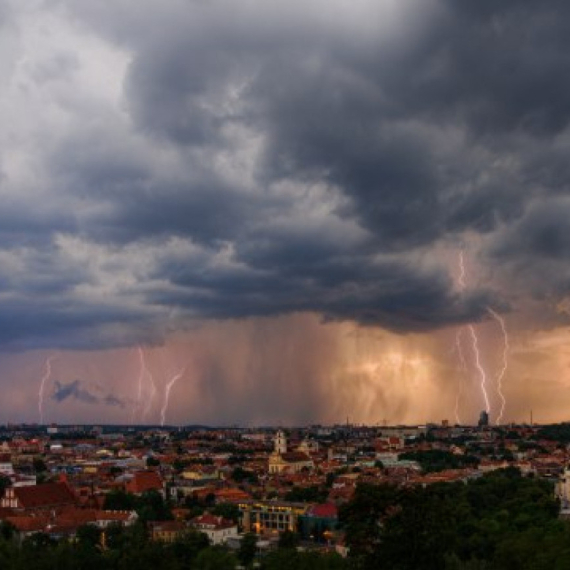
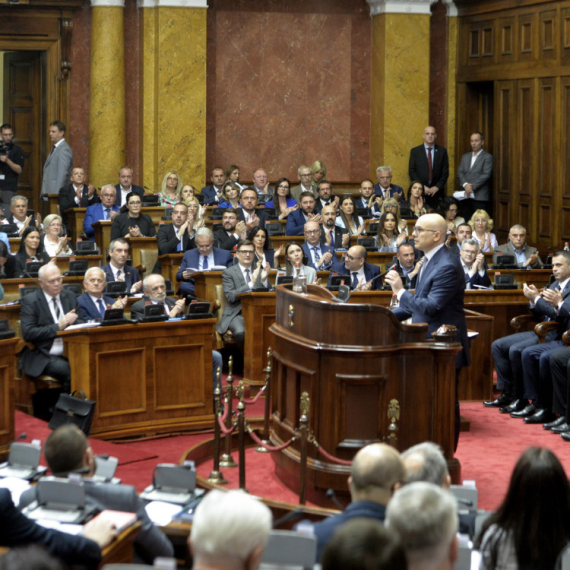

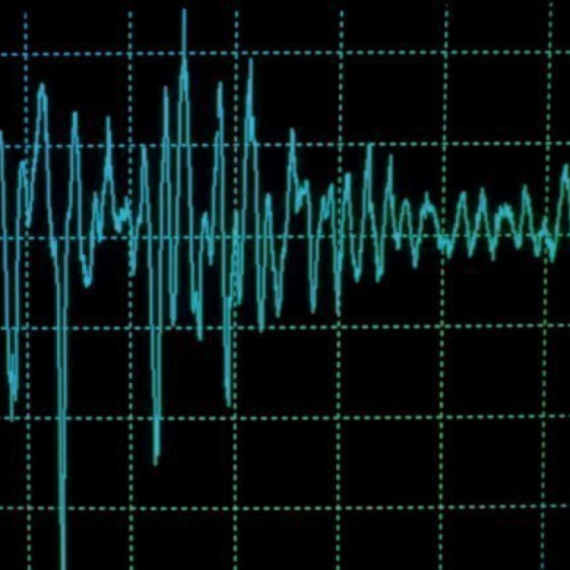




















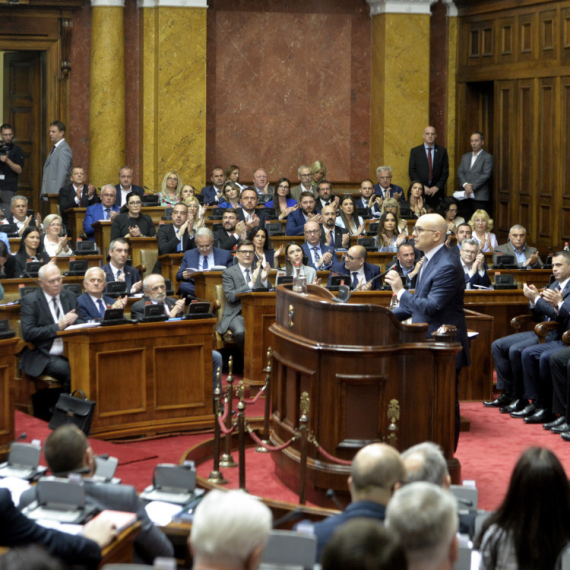









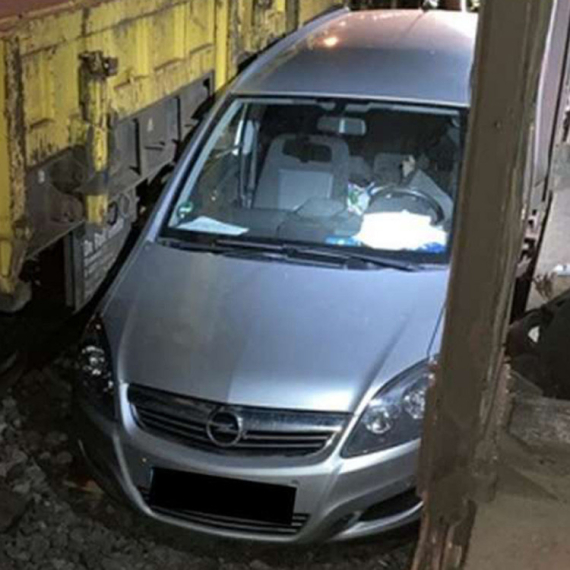



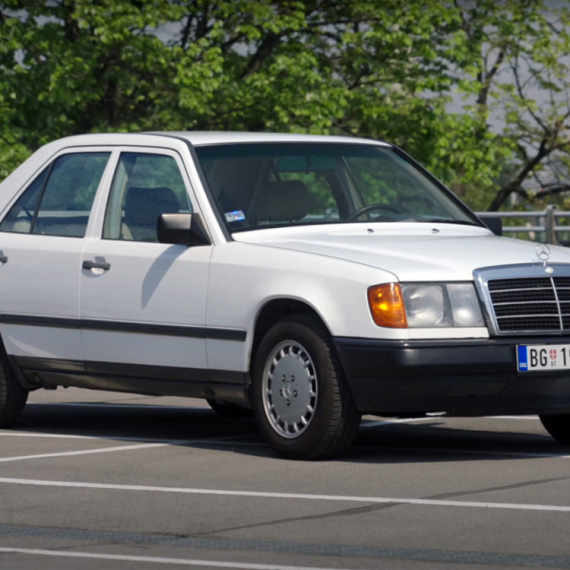






Komentari 19
Pogledaj komentare